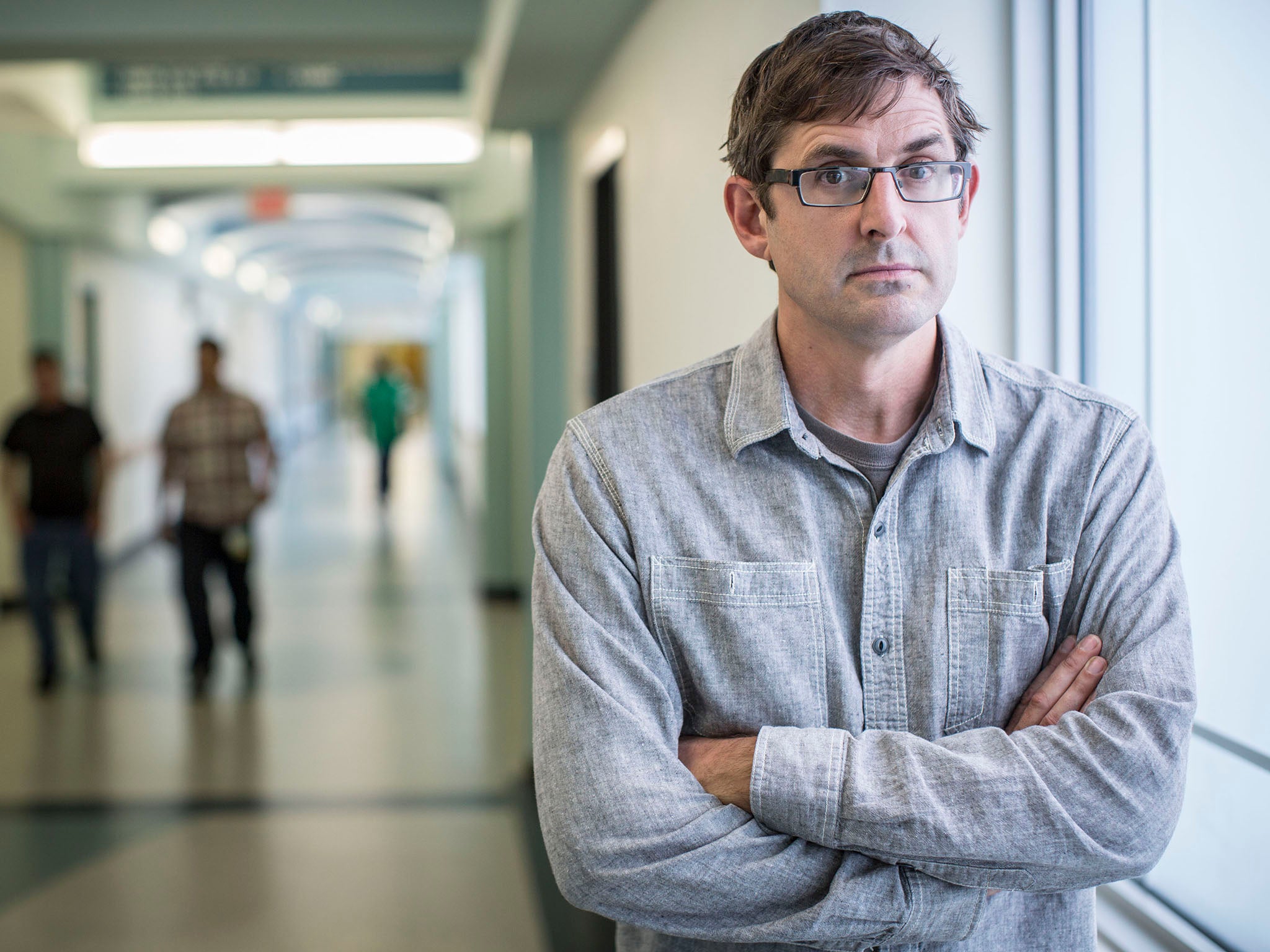Louis Theroux explains why he's so stoic in his documentaries
He cried during the filming of The Most Hated Family in America, but edited it out

One of the main characteristics of Louis Theroux’s filmmaking is his lack of emotion in front of the camera. In many cases, you get the sense that his facade of innocence-verging-on-simpleness is an act, cunningly disarming his subjects and making them feel more at ease around him. But what about the people he doesn’t need to win over, who are in genuine pain or distress?
In A Q&A on the Guardian, he explained that he does sometimes get emotional while being filmed, but often these scenes are cut as he feels the viewer needs the documentarian to “remain impassive” and maintain a “dispassionate journalistic presence”
He recalled a time he was on the verge of tears when covering the Westboro Baptish Church:
‘There have been times when I've felt inappropriately emotional. I remember making The Most Hated Family in America about the Westboro Baptist Church, and being on the way to a funeral of a US soldier with the Phelps family, they were going to picket the funeral. Something they always did was to read out biographical information about the dead soldier among themselves in the van on the way. And seize on bits they took to be evidence of ungodliness, like he was divorced or had children out of wedlock, or his parents were divorced. On this occasion they let me read out his biographical information and just in reading out I became aware I was on the verge of tears. We didn't put it in the programmed because it wasn't a particularly vivid scene or especially revealing - I was just having a human response.
It was just so sad reading about this guy's life, thinking about the quotes from his mum which reminded me of my eldest son, she called him her little tank, a tough little guy. It made me think of my own son and what I would feel if he died. So that was why - I was aware I was feeling emotional. It doesn't help viewers to see me reacting in that way. It's better in general if I can remain impassive. I never want to feel more than the viewers. I'm not trying to be an automaton. It's like when you see people laughing on camera and you don't find it funny as a viewer - it's an offputting experience. The viewers need to be a judge of what they find emotional. I really do try not to emote. I don't like seeing it on documentaries - it seems a bit unprofessional. I also need to be human being and be a kind of sympathetic presence for the contributors I'm with, so there' a line you have to walk.’
Theroux said that his most recent BBC documentary, Drinking to Oblivion, was one of his most difficult in this respect, following the lives of people with alcohol addiction who frequently relapse.
Subscribe to Independent Premium to bookmark this article
Want to bookmark your favourite articles and stories to read or reference later? Start your Independent Premium subscription today.

Join our commenting forum
Join thought-provoking conversations, follow other Independent readers and see their replies